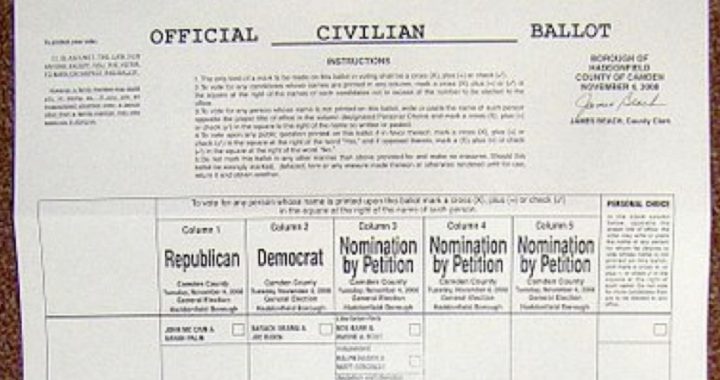
A national group looking to expose voter fraud announced Tuesday that it has unearthed more than 30 cases of absentee ballot fraud in Florida and New York. True the Vote, an advocacy group seeking to “restore integrity” in the U.S. electoral process, affirmed that it provided state and federal election officials with more than 31 cases detailing how individuals cast votes in two separate states in the same federal election.
True the Vote is a Tea Party-inspired voter watchdog group that has aggressively pursued fraud reports while training and mobilizing individuals who are dedicated to eliminating fraud in the U.S. electoral system. In doing so, the group has, according to its website, “deconstructed the entire process, focusing on educating voters, examining the registry, recruiting, training and mobilizing election workers and poll watchers, training how to collect data all along the way, then use the data to shape government action and legislative agendas to support desperately needed election code reform.”
Both Florida and New York have provisions that require residents to cast ballots that correspond with their primary home addresses. Naturally, federal law states that voters are forbidden to cast votes in two separate states, and doing so is a felony.
Logan Churchwell, a spokesman for True the Vote, told Fox News that the group analyzed Florida’s entire voter registration roll and evaluated it against 10 percent of New York’s voter roll. In its study, the organization pinpointed 1,700 people with voter registrations in both states. Of those people, 31 purportedly cast ballots in both states during the same election cycle.
Chris Cate, a spokesman for the Florida Department of State, indicated that the state had received the information provided by the watchdog group. “Florida takes seriously its commitment to ensuring the accuracy of its voter rolls and the integrity of the election system and we will carefully review the information and any future information provided that suggests a violation of the state’s elections laws,” he asserted.
“This is just the tip of the iceberg,” Catherine Engelbrech, president of True the Vote, suggested. “This is further evidence of just how susceptible our election system is to voter fraud. Earlier this year, Pew Research found more than 2.75 million people nationwide are registered to vote in more than one state. These early findings put a name, face and potential motivation behind that startling statistic. True The Vote calls on Florida, New York and federal officials to investigate and confirm our citizen research.”
Of course, this isn’t the first time a watchdog group or state, federal, or local government has identified “double-voting” fraud in an election. Writing for the Human Events blog, John Hayward explains:
Something similar happened in Arizona, where nine cases of double voting were discovered in the 2008 election. All of these discoveries highlight one of the reasons it’s time to sweep aside the foolish and disingenuous arguments from critics of voter identification, and use all of our Information Age resources to clean up our voter registrations rolls, and properly identify all voters at the time ballots are cast: it takes a long time to catch these false votes after the fact, and it doesn’t make much difference when they’re discovered months and years later.
Back in 2008, WHIO News in Ohio identified 3,000 deceased people registered to vote, and “approximately 22 of them voted from beyond the grave.”
“Amazingly, until May of this year, Ohio only had access to the records of people who died in Ohio for the purposes of purging the dead from its rolls,” Hayward noted. “Whatever zombie voters remain in the system are about to get absentee ballot request forms, which they can fill out while snowbird double voters soar through the crisp autumn skies overhead.”
Some government officials and electoral experts have called voter fraud a real problem, especially in tightly contested precincts where elections can be decided by only hundreds of votes. The problem is, without stricter election rules — such as voter identification laws — such fraud is difficult to combat before the election is decided.
“If an election ever came down to someone [winning] by one or two votes, and we could find that someone had voted multiple times — it would be hard to imagine that we could find those things fast enough to make a difference in that election,” asserted Arizona Secretary of State Ken Bennett. “Which is why we want to make sure that people know that we’re checking for this, and that we don’t want them voting twice in this upcoming election.”
Fortunately, watchdog groups like True the Vote have dedicated their assets to exposing such flagrant cases of fraud, which could manipulate the result of an election. Refusing to address this problem, some critics affirm, is undemocratic, as voter fraud skews election results and undermines the ballots of legal voters. Meanwhile, America’s elected officials continue to condone these acts by refusing to enact laws designed to root out such fraud.



